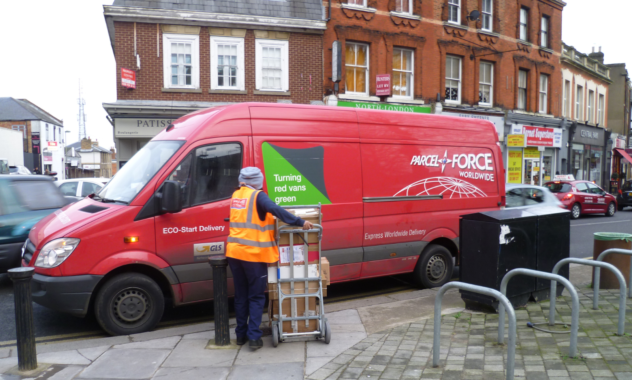National Minimum Wage to rise to £11.44 per hour
The minimum wage, known officially as the National Living Wage, is currently £10.42 an hour for workers over 23

Chancellor Jeremy Hunt has announced an increase of £1.02 in the National Minimum Wage from the current rate of £10.42, to £11.44 – effective from April next year.
According to the Treasury, it is the largest ever cash increase to the rate – and is equivalent to £1,800 a year for those on the lowest income.
In doing so, Hunt has accepted in full the recommendation of the Low Pay Commission (LPC) – the body set up to advise ministers on the level of the national legal minimum wage
Eligibility for the national living wage (NLW) will also be extended by reducing the age threshold from 23 to 21. According to the Treasury, a 21-year-old will get a 12.4% increase, from £10.18 this year to £11.44 next year. National minimum wage rates for younger workers will also increase, with those aged between 18 and 20 getting an uplift of £8.60 an hour – a £1.11 hourly pay rise.
The increase from £10.42 to £11.44 comes against a backdrop of a cost of living crisis in which inflation peaked at 11.1% – the highest in 40 years.
Chancellor Jeremy Hunt said:
“Next April, all full-time workers on the national living wage will get a pay rise of over £1,800 a year. That will end low pay in this country, delivering on our manifesto promise. The national living wage has helped halve the number of people on low pay since 2010, making sure work always pays.”
The Government’s NLW is separate from the real Living Wage, as set by the Living Wage Foundation at £12 per hour (and £13.15 in London). The Living Wage is calculated according to the basic cost of living in the UK, and employers choose to pay the living wage on a voluntary basis. As of April 2024 when the new Government’s National Living Wage rises, a worker earning the real Living Wage would earn £1,092 a year more than someone on the government minimum, and £3,334.5 more for a worker earning the London Living Wage.
Living Wage Foundation Director Katherine Chapman responded by saying:
“A rise in the statutory National Living Wage from next April is welcome news for low paid workers but it still falls short of the voluntary real Living Wage which is £12 per hour in the UK and £13.15 per hour for workers in London. There are now 14,000 Living Wage accredited employers across the UK who are committed to always paying everyone in their organisation, including contractors like cleaners and security guards, a real Living Wage based on the cost of living. Despite tough economic times, it has been heartening to see record numbers of businesses join our movement and we’d encourage other organisations who can, to make the Living Wage commitment too.”
Bryan Sanderson, the chair of the Low Pay Commission, said:
“The national living wage has delivered an improved standard of living to thousands of people who care for our children and elderly, work in farms and shops and at many other essential jobs.
These efforts over the lifetime of the NLW mean over £9,000 per annum more to a full-time worker without any increase in unemployment. This hasn’t been easy for employers, with the economy facing a range of unprecedented challenges in recent years.
The high degree of political and economic uncertainty has made assessing and forecasting the performance of the economy, and therefore our task, very difficult. It is a tribute to my fellow commissioners that we have continued to achieve consensus.”
TUC general secretary Paul Nowak welcomed the increase, saying:
“Today’s much-needed rise to the minimum wage shows the enduring impact of having representatives of business and unions on the Low Pay Commission, which recommends the rate.
This ensures that worker and employer interests as well as the wider economy and labour market are considered. It is a template for better policymaking.”
However, Nowak called for an uplift to £15 “as soon as possible”, saying most pay packets had fallen in real terms over the last decade by failing to keep up with inflation.
Paddy Lillis, Usdaw general secretary, however, said that the Chancellor’s claims to be ending low pay wityh these increases were ‘deluded’:
“The chancellor is deluded when he claims that this increase fulfils their manifesto pledge to end low pay for those on the National Living Wage. The real living wage, which takes into account the cost of living, remains over 50p more per hour and better reflects the pay workers need.
We provided the Low Pay Commission with evidence of why we need a new deal for workers, which includes at least £12 per hour now, as a step toward £15, and an end to unjust rip-off youth rates. While we welcome a pay rise for the lowest paid and the lowering of the age that the adult rate applies, today’s uprating shows that the Government has missed the opportunity to provide the help workers need to get through the biggest cost of living crisis in a generation.
Going to work should mean a decent standard of living for all workers, not least young workers. They are more likely to be paid less than older colleagues, even when doing the same job. They also often work hours that are not guaranteed in their contract, so they really need fairer and better pay. It is deeply disappointing that minimum wage rates continue to discriminate by age for under 21s.
I’m afraid today’s uprating shows that the government is not doing what workers need in the face of the cost of living crisis. They have simply failed to understand the scale of the challenge faced by millions of workers across the country. That is in stark contrast to the commitment made by Labour to deliver a new deal when they get into government.”







